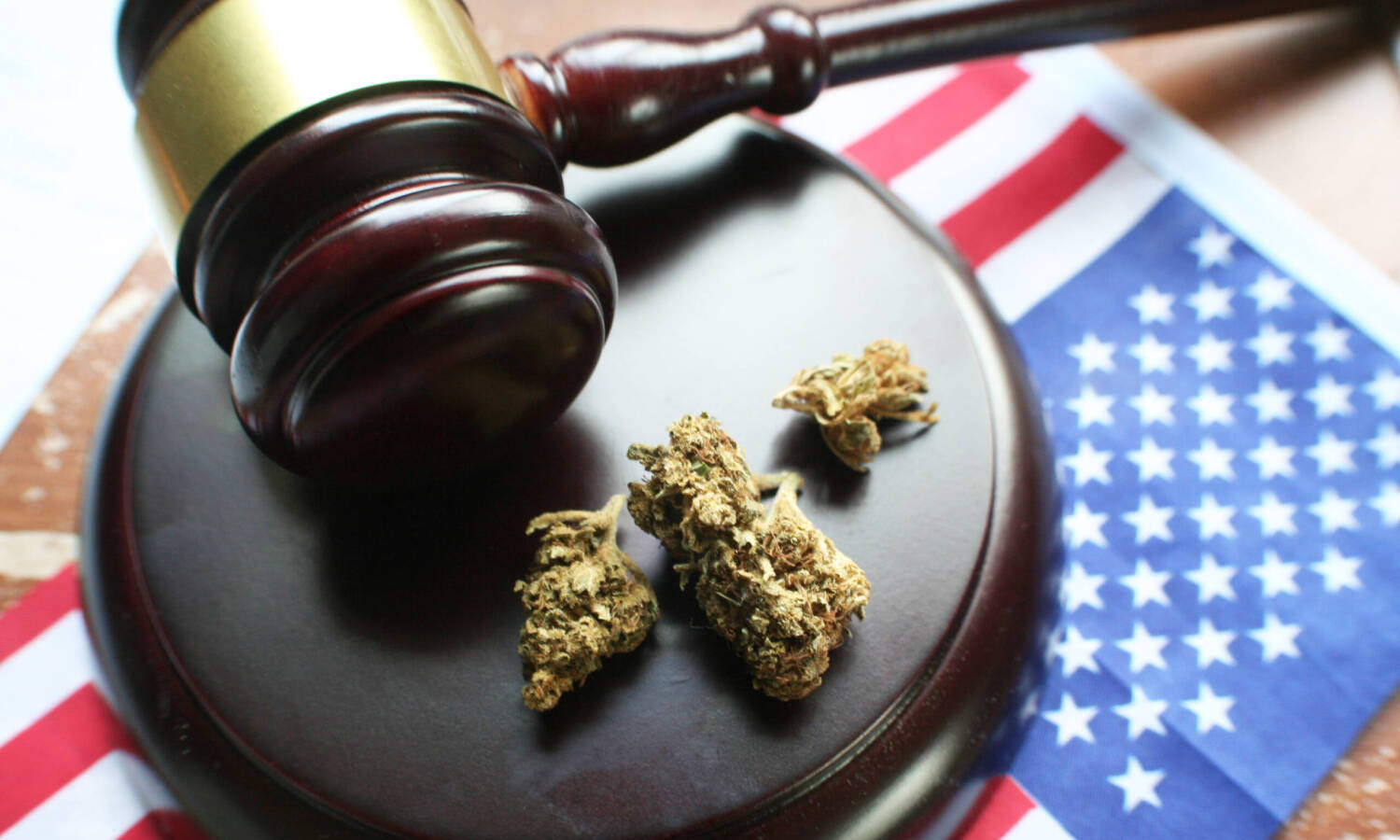Because of the popularity of legalization, many states with limited sales or unclear laws may be changing in the near future.
The United States presents a unique perspective on the legality of cannabis. It is not yet legal on a federal level, and yet each state is permitted to legalize its use and production to whatever level they deem appropriate. This leads to a lot of confusion, grey areas, unequal enforcement of laws, and other problems.
However, there is a faint light visible at the end of the tunnel. Public opinion has been quickly shifting toward the legalization of cannabis and hemp. And while lawmakers tend to be more conservative on the issue, they are ageing out of power.
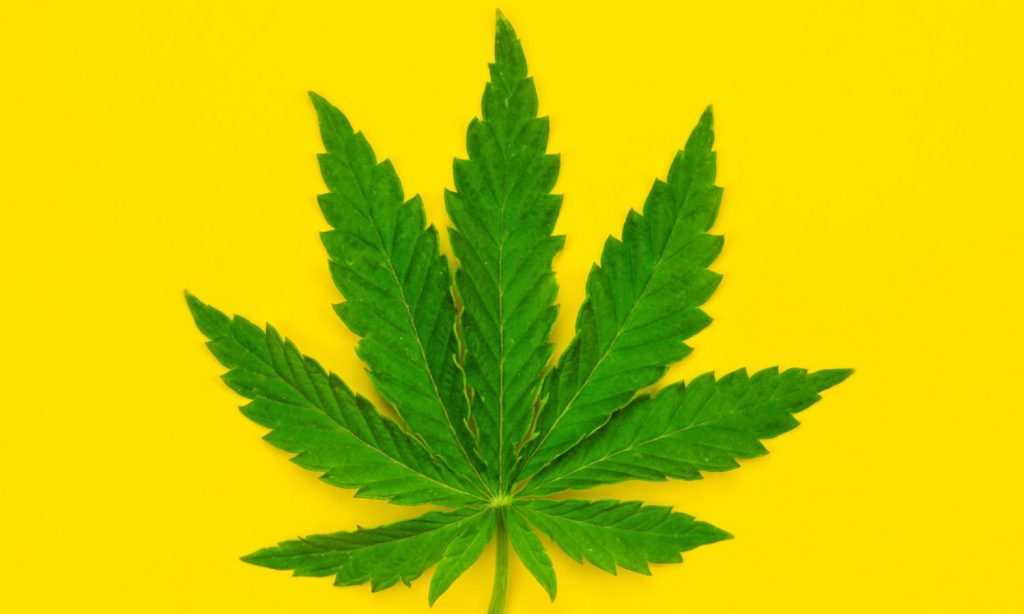
In this article, we’ll take a deep dive into the licensing and legality of cannabis legislation. We’ll share what is happening state-by-state, what the issues are, and how they are being overcome.
Licensing Cannabis in the United States
Because there is no comprehensive law regarding the sale of cannabis, licensing procedures vary from state to state. Each state has its own set of laws that allow the production and use of cannabis and hemp products at a differing degree — some have opened the door to recreational THC use, others allow medical. Some allow CBD, but not THC. Some allow one analog of THC, but not another.
Due to this legal complexity, there is no official guide to licensing agencies by state… you just sort of have to research for yourself on an individual basis. However, knowing this information is extremely important for the very reason it’s difficult to find–because of the complexity behind licensing laws.
When purchasing a CBD or THC product from a source, as a consumer, you want to know that what you’re doing is legitimate where you currently are. And if you are trying to create a cannabis business, it’s even more important. What can you grow, and how much? Can it be transported over state lines?
There are licenses that can be acquired for both medical and recreational cannabis, respectively. You need to know just where you plan to produce and sell so you are aware of what laws may pertain to your business. Some states aren’t even offering the opportunity to apply for licenses at the present time.
A State-by-State Guide
There are fifty states to get through, so we’ll group them carefully by their current legal status. We’ll get a little more in-depth for the states that have more issues plaguing the licensing process.
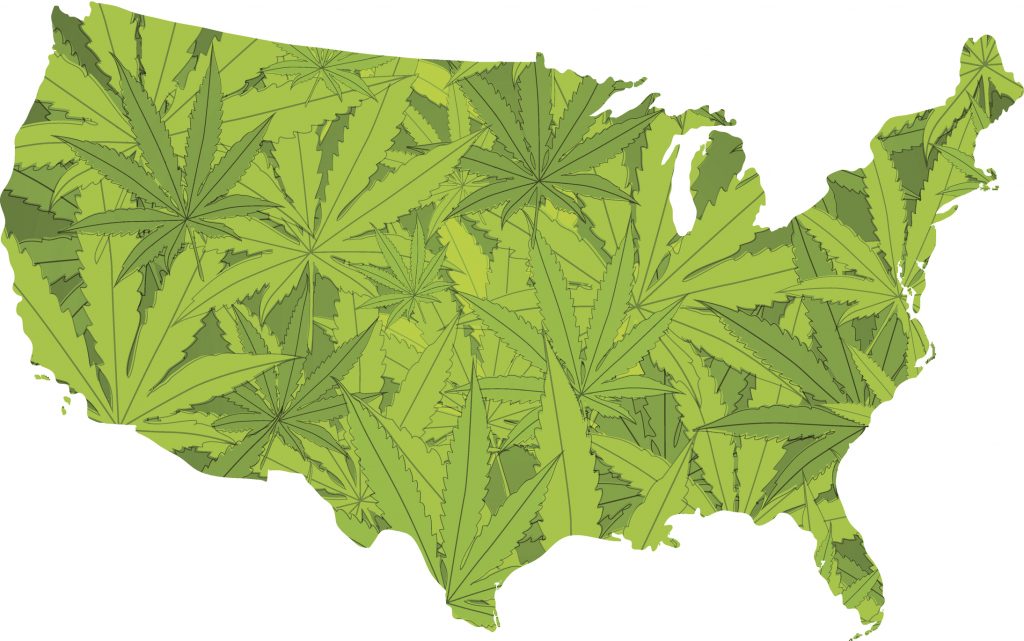
The Fully Legal States
In the following states, cannabis is completely legal in all forms for both medical and recreational purposes.
Alaska — apply online for a Marijuana Establishment License
Arizona — Arizona DHS accepts periodic applications. Must be set up as a medical dispensary
California — apply to one of three state licensing authorities based on type (cultivator, retailer, etc.)
Colorado — you may apply for either a medical or recreational license
Connecticut — state occasionally awards licenses to applicants for medical marijuana businesses
Illinois
Maine
Massachusetts — you may apply through the Cannabis Control Commission
Montana
Nevada
New Jersey* — not issuing licenses at this time
New Mexico — not currently accepting applications
New York — not currently accepting applications
Oregon — licenses may be applied for through the Oregon Liquor Control Commission
Vermont — not currently awarding licenses
Washington — not currently accepting applications.
Even in fully legal states, licensing laws vary. In fact, in New Jersey, an individual may not have any amount of growing seed or plant unless they are licensed as a cultivator. In Arizona, while recreational marijuana was legalized in 2020, they currently only license under state medical marijuana clinics.
Colorado, on the other hand, has a state website that links to an enormous list of licensed operators, manufacturers, cultivators, transporters, and other industry players. (3) Even within the fully legal areas, there are some fuzzy lines.
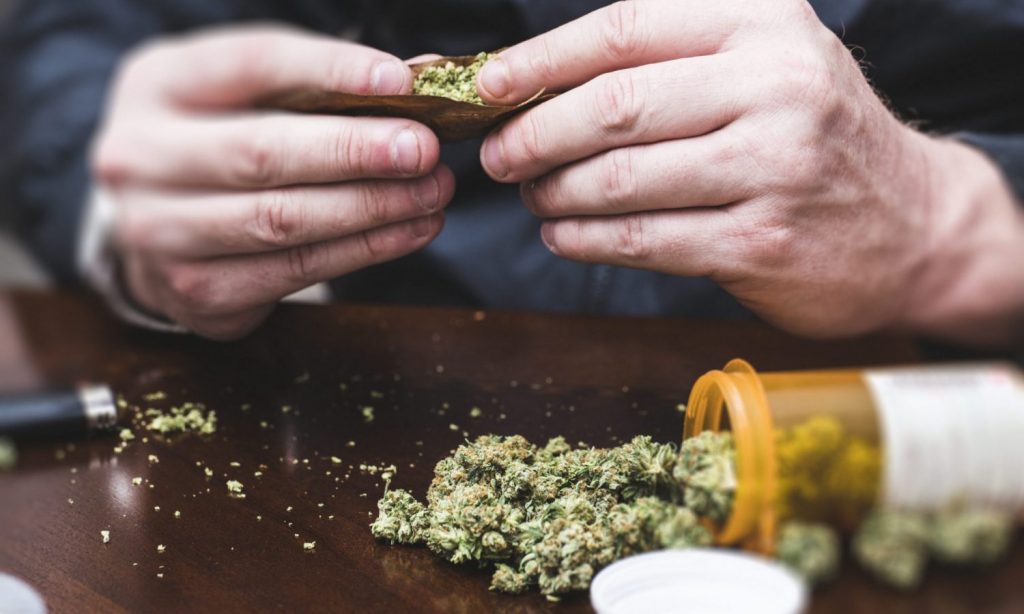
Medical Legal Marijuana States
Here is a list of states that have legalized medical marijuana, but continue to prosecute for recreational use:
Alabama
Arkansas — apply through Arkansas Medical Marijana Commission
Delaware — extremely limited
Florida — not currently accepting licenses to manufacture medical marijuana
Louisiana
Maryland
Maine — rarely awarded, but you may apply to create a marijuana social club
Michigan — Department of Licensing and Regulatory Affairs is currently taking applicants for growers, transporters, processors, and safety compliance facilities.
Oklahoma
Pennsylvania
South Dakota
Utah
West Virginia
Within these states, there is also a varying yardstick for prosecution…while medical cannabis is legal, recreational use ranges from jail time to misdemeanor infraction/fines. What also changes within these parameters is how much and what kind of product may be transported over state lines.
For example, in the case of Alabama it is unclear. There is no stated law one way or the other, and therefore it’s dangerous to mess with. Other states like Arkansas allow for transportation of THC (though no specified amount) for medical purposes only. Also in Alabama, only licensed cultivators may have plants, while in other states like Florida, an individual may grow cannabis for medical purposes.
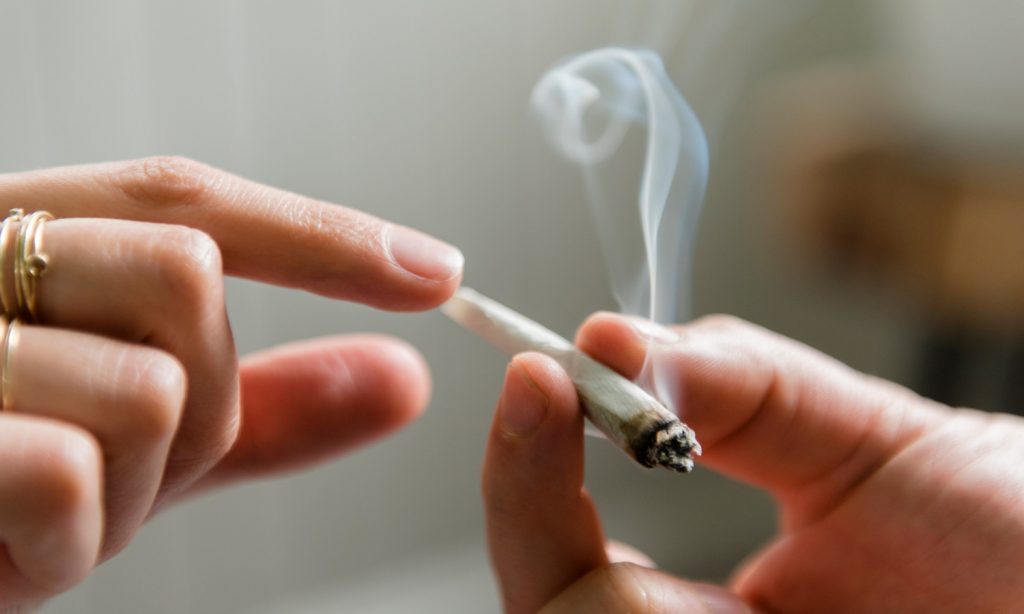
The Illegal States
In the following states, there is little question of legality or licensing; all cannabis is illegal.
Georgia
Idaho *
Indiana
Iowa
Kansas
Kentucky
Mississippi
Nebraska
North Carolina
South Carolina
Tennessee
Texas
Wisconsin
Wyoming
And yet, even in these states where cannabis products are strictly illegal, there are still some grey areas within the law.
RELATED: Why Marijuana’s Illegal Classification Is Based On Politics, Not Science
Idaho is one state that has very little wiggle-room. Possession of cannabis plants is a felony charge, and even CBD oil isn’t allowed to contain more than 0.1% THC. While marijuana use is illegal in Georgia as a whole, certain cities have decriminalized it — Atlanta, Clarkson, Forest Park, Savannah, South Fulton, Statesboro, and a couple of unincorporated counties.
Ironically Kentucky, a state where both medical and recreational marijuana are illegal, hemp is a big business. Kentucky is a huge supplier of industrial hemp for CBD extraction (CBD is legal in Kentucky). Their law has no clearly stated prohibition against the transportation of cannabis or hemp over state lines.
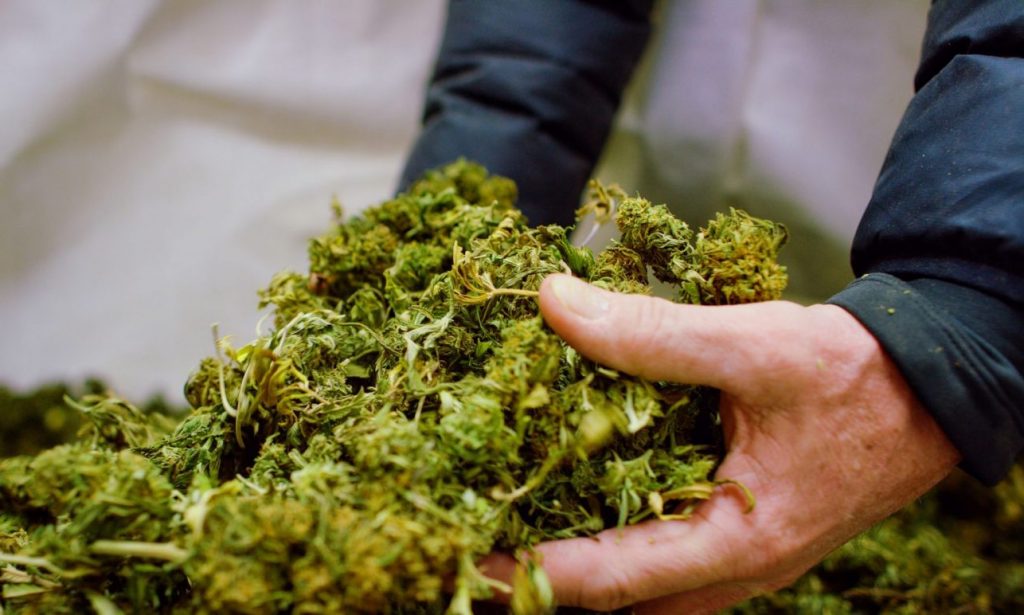
THC Grey Area States
Finally, there are some states that can best be described as “grey area” states. These states have difficult-to-parse laws that are unclear at best.
Delaware
Hawaii–unclear whether more licenses will be awarded by the state
Louisiana *–limited
Maryland
Mississippi *
Minnesota–no licenses available at this time
Missouri
Nebraska *
New Hampshire–not currently issuing licenses
Ohio–due to recent legalization of marijuana, demand is up and therefore more licenses may be issued at this time.
Rhode Island–only accepts applications during open periods.
North Carolina
Tennessee
Texas *
Wisconsin *
Some of these states are repeats, as cannabis is either straight-up illegal or only medically legal. However, they get a special category as the laws pertaining to use, possession, or sales can be super wonky.
RELATED: 4 States That Could Legalize Recreational Cannabis In 2022
Some of these states work more toward the side of leniency. This includes states like New Hampshire. They allow for medical marijuana and have decriminalized recreational marijuana, but only up to 0.75 oz. You can also grow plants, but only for medical use. Nebraska has decriminalized the use of marijuana also, but only for the first offense.
In Louisiana, recreational marijuana is decriminalized up to 14 grams, and medical marijuana is legal, but it is illegal to grow your own, even for medical purposes.
The Bottom Line
So what does all this mean for the licensing process for the cannabis industry? Essentially, it’s time to watch for changes in state laws. Because of the popularity of legalization, many states with limited sales or unclear laws may be changing in the near future.
Take a look at the example of Ohio. Because they recently opened up for medical marijuana, they are currently accepting far more applications than many states that have established laws in favor of marijuana use. States that are closed for licenses may be suddenly wide open for business if recreational use takes hold in a previously illegal area.
Like all good entrepreneurs, it’s best to keep a finger on the pulse of trends. This may be especially smart in states where they seem to be on the cusp of legalization (legal for medical, decriminalized for recreation, for example). Opportunities may await in these places.
This article originally appeared on Benzinga and has been reposted with permission.

